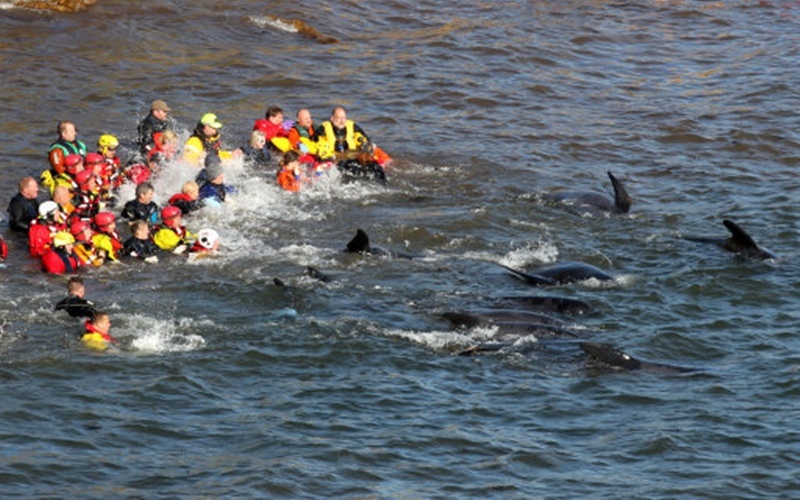An investigation has been launched to establish the reasons behind the recent whale beachings along the coastline of Courier country.
The Scottish Government’s Environment Secretary Richard Lochhead has requested a full report into the recent incidents after 22 long-finned pilot whales died after beaching themselves between Pittenweem and Anstruther in Fife during the weekend of September 2 and 3 and a deceased sei whale was found on a beach at Elliot near Arbroath on September 14.
Suggestions emerged last week that sonar technology used by submarines and other underwater devices to map the ocean floor may disorient mammals such as whales which use sonar to navigate and communicate.
Initial reports for the pilot whales suggest no obvious health concerns or physical injuries.
Scientists at the Scottish Agricultural College are taking forward a full investigation into both incidents, using evidence gained from post-mortems, with the results to be made available as soon as possible.
Mr Lochhead said: ”It is deeply distressing when we hear reports of whales dying, particularly mass stranding incidents such as we saw earlier this month in Fife.
”In spite of the valiant and persistent efforts of volunteers from the British Divers Marine Life Rescue, 22 of 26 animals could not be saved and sadly died.
”The reasons why whale strandings take place, be it natural causes or linked to human activities, are not known.
”The initial findings do not point towards any obvious health problems, however I hope that by examining and testing the carcasses, SAC will be able to shed light on this concerning issue.
”Scotland’s seas are blessed with many marine mammals, including more than 20 species of whales, dolphins and porpoises. It is our responsibility, where possible, to do all we can to protect these wonderful and popular species.”
SAC veterinary investigation officer Andrew Brownlow said: ”There are many reasons why whales come close to shore and strand, and we plan to investigate as thoroughly as possible.
”The species involved are quite different in terms of ecology, physiology and behaviour, so it would be unusual to find a single cause for these strandings.
”Initial results on the pilot whales suggest most were healthy. Strandings are sadly not uncommon with social cetacean species, where many animals appear to strand because they follow a sick, lost or panicked individual.”
